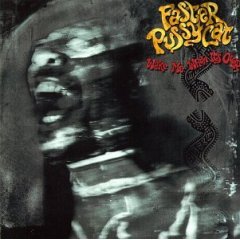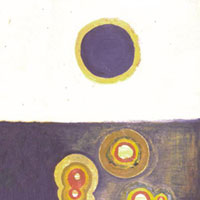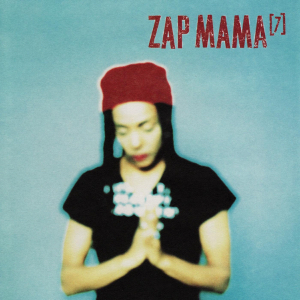
Wake Me When It's Over is the second album by Faster Pussycat, released in 1989. The band moved away from the glam metal of their first album to a more blues-influenced sound.

Marie Daulne is a Belgian singer.

A Dream in Sound is an album by the indie rock band Elf Power. It was released in 1999 via Arena Rock Recording Company/Elephant 6.

The Winter Is Coming is an album by the indie rock band Elf Power, released in 2000.
Ancestry in Progress is an album by Zap Mama, released in 2004. Marie Daulne, Zap Mama's leader, deemed the music "Afropean".

7 or Seven is an album by Zap Mama, released in 1997 on Luaka Bop Records.
I made music on Seven the same way as on the other albums. I only used acoustic instruments... I'm looking for instruments that have vocal sounds, forgotten instruments like the guimbri... The first and second albums were about the voice, what came before. This album is about introducing those sounds into modern, Western life.

Zap Mama is the music act of Belgian artist Marie Daulne. Zap Mama sings polyphonic and afro-pop music, a harmonic music with a mixture of infused African vocal techniques, urban, hip hop with emphasis on voice. The worldwide success of Zap Mama, and an ensemble of female polyphonic singers, inspired influences in American hip hop, nu-soul, jazz and elements of pop. The evolving musical compositions created a diverse band of singers and musicians for Zap Mama.

Carnival Boy is the debut solo album by the former Guided by Voices member Tobin Sprout, released in 1996.
Vermilion is an album by the American band the Continental Drifters, released in 1999. It was first released in Germany, in 1998.
Slo-Blo is the debut album by the American alternative rock band Cell. It was released in 1993 by DGC Records; the band had been signed by Thurston Moore. The album was first issued by City Slang, in 1992.
Be Bop or Be Dead is the debut solo album by the American musician and Last Poet Umar Bin Hassan, released in 1993. Hassan had spent many of the preceding years isolated from his group and his music while dealing with drug and personal issues. The album was a commercial disappointment.
Logical Progression is a compilation album spearheaded by the English musician and label head LTJ Bukem, released in 1996. It includes tracks by Bukem and artists who recorded for his label, Good Looking Records, as well as his remixes.
Quilt is an album by the American indie rock band the Shams. Released in 1991, it was the band's only album.
Prize is an album by the American musician Arto Lindsay, released in 1999. Lindsay considered it an attempt at pop music; it is one of a number of his solo albums inspired by the Brazilian music he heard while growing up in the country.
Una Mujer Como Yo is an album by the Cuban musician Albita, released in 1997.
White Out is the second and final studio album by the American band Verbow, released in 2000. The band broke up two years later.
Sol Negro is the debut album by the Brazilian musician Virginia Rodrigues. It was released in 1997.
Multiculti is the second album by the Cameroonian musician Sally Nyolo, released in 1998. The title track was a hit in France. Nyolo supported the album with a North American tour.
Serious Business is an album by the Jamaican band Third World, released in 1989. "Forbidden Love" was the first single. Third World supported the album with a North American tour.
Barrington is an album by the Jamaican musician Barrington Levy, released in 1993. It was regarded as a crossover attempt. The first single was "Murder". Levy supported the album with a North American tour.







